We break down the results from CSW's survey with the Reform think tank
In a bid to understand how civil servants feel about talent and performance management, CSW and Reform held a survey last month, which was completed by 771 officials between 7 and 22 March.
The first series of questions in the survey asked civil servants to what extent they agree with the following statements:
The civil service takes talent and performance management seriously
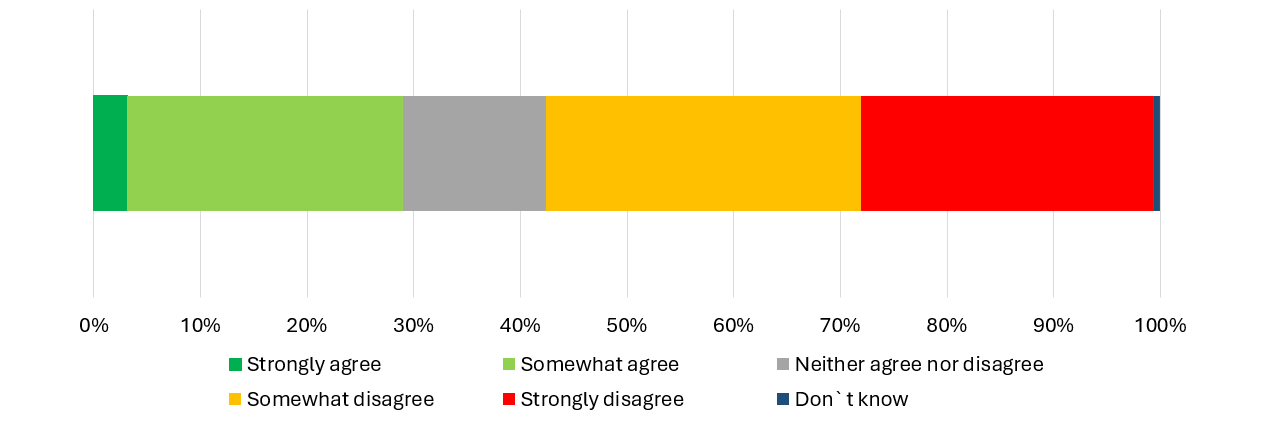
A majority (57%) disagreed with this statement, with more than a quarter (27%) strongly disagreeing, while just 29% agreed. Administrative grade officials were least positive about the seriousness with which the civil service takes talent and performance management, with 58% saying they strongly disagree.
Talented people rise to the top of the civil service
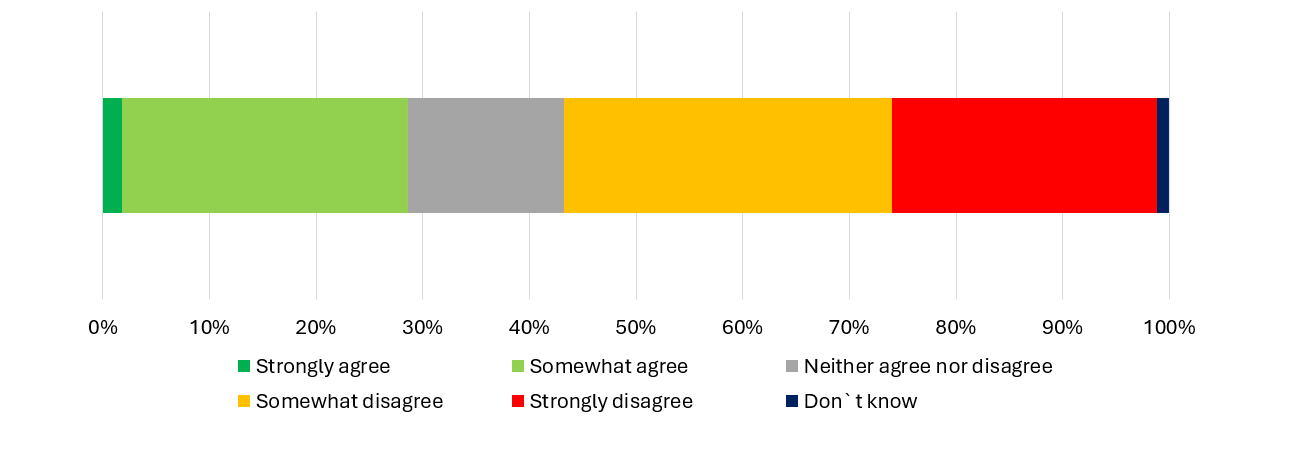
Similarly, 55% disagreed with this statement, with 29% agreeing. The lack of faith in talent rising to the top was particularly stark at administrative level, where 0% agreed with the statement. SCS-level civil servants were most likely to agree that talent rises to the top (44%), but less than 2% said they strongly agreed.
The civil service in general manages poor performance well
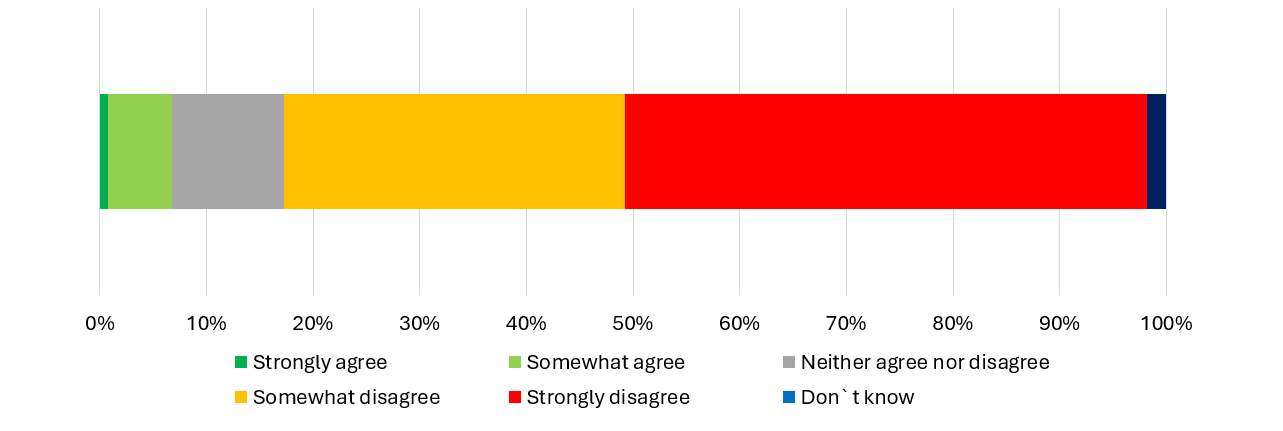
A big majority (81%) disagreed with this statement and almost half strongly disagreed (49%), while just 7% agreed with it. SCS-grade officials were most likely to disagree (91%); just 4% of senior civil servants somewhat agreed and none strongly agreed. No fast streamers agreed that poor performance is managed well, while administrative officials were most likely to say they strongly disagree (69%).
Managers are incentivised to move poor performers to another role or department, rather than manage them out of the civil service

Two-thirds agreed with this statement – including some 83% of Grade 6 officials – while just 15% disagreed.
I have a good line manager and feel supported by them to progress
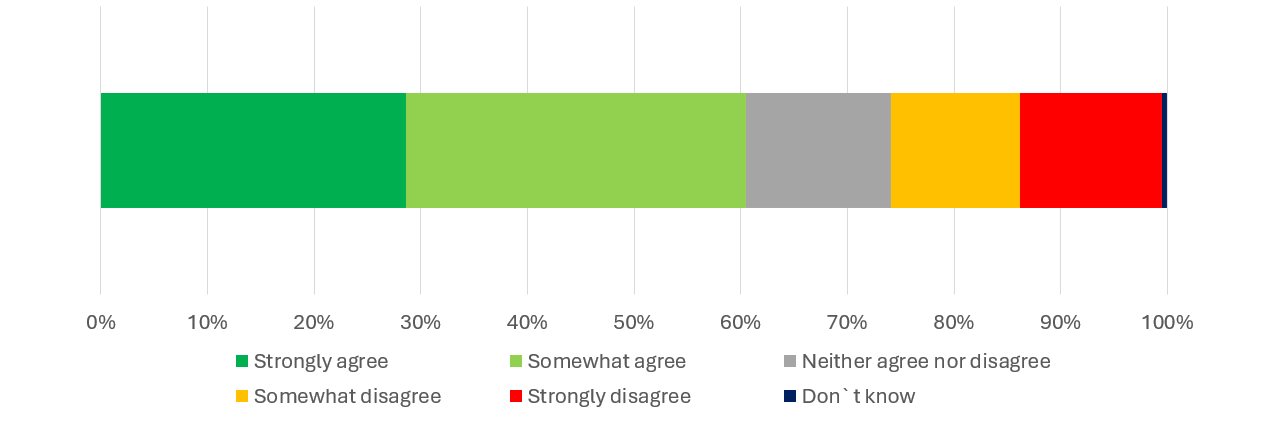
Most respondents (61%) agreed with this question, although there was significant variation across grades. Just 39% and 35% of Administrative and EO-grade officials respectively agreed, with HEO (70%) and SEO (66%) officials at the other of the scale.
There are opportunities to progress, which makes a future career in the civil service an exciting prospect

Respondents were fairly divided on this one, with 44% agreeing and 42% disagreeing, and somewhat agree the most popular answer (32%). This varied quite significantly across grades. Fast streamers were the most positive, with 85% agreeing with the statement, although a large majority were "somewhat agree" responses. Administrative level officials, on the other hand, were the most likely to disagree, including some 58% who strongly disagreed.
I am aware of disciplinary issues where action should have been taken but has not
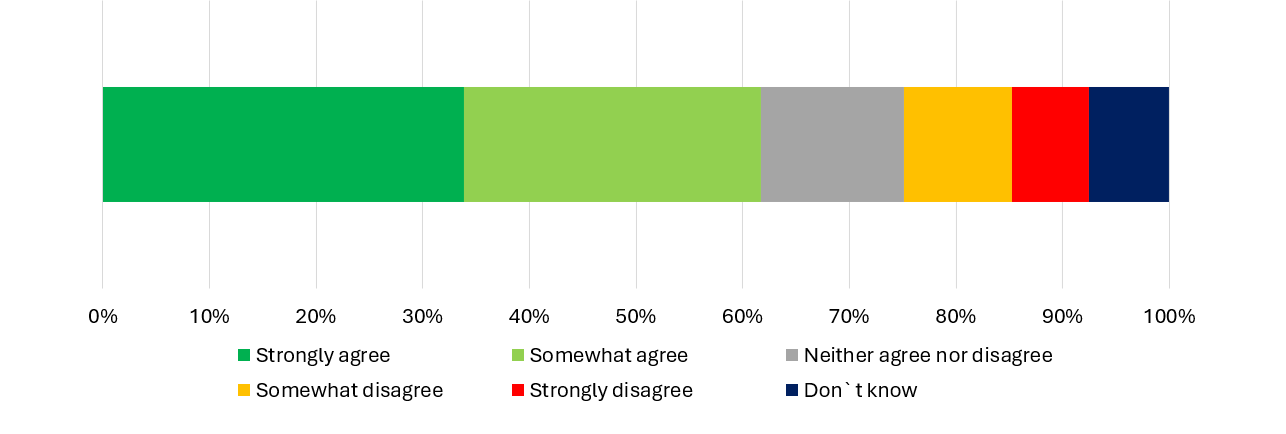
A strong proportion (62%) agreed with this statement.
I understand the role the HR function in my department plays
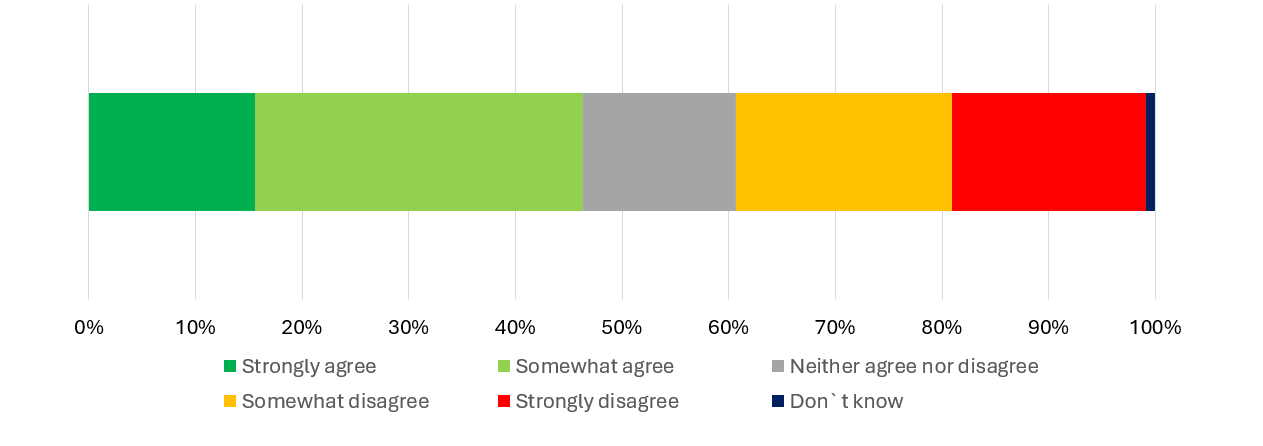
These results suggest there is fairly strong understanding among civil servants of the role their departments’ HR functions play, with more agreeing (47%) than disagreeing (38%). However, the most popular response was somewhat agree (31%). And very few fast streamers said they understand this (7.7% somewhat agree, 0% strongly agree).
The survey then asked a series of questions which were only shown to survey respondents who said they were line managers.
Have you ever required the support of someone from the HR team in your department?
A big majority (83%) said they had. More senior civil servants were likely to agree, with some 95% SCS and 93% of Grade 6 civil servants saying "yes", along with three-quarters of Grade 7 and SEO officials.
What proportion of people in your directorate do you feel are poor performers?
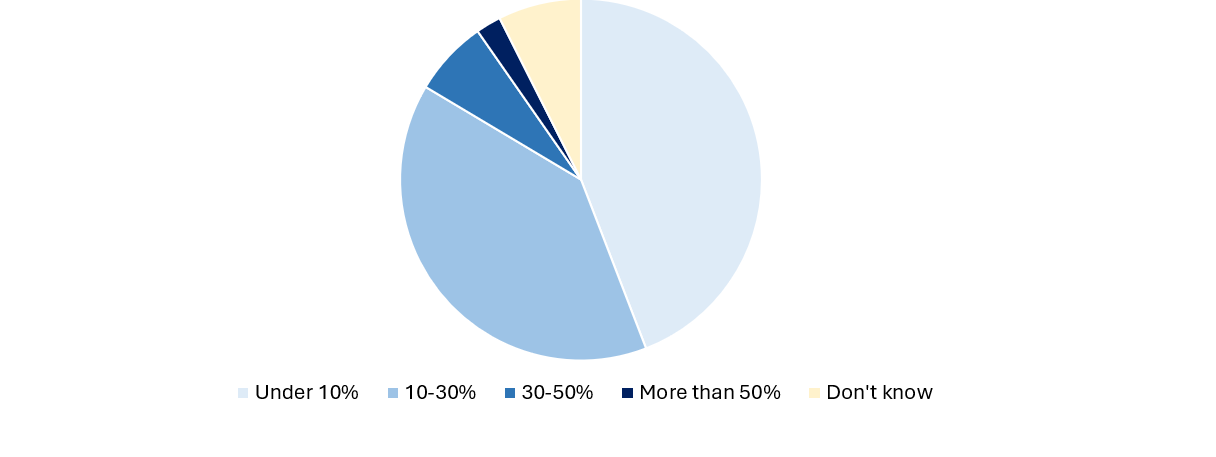
Under 10% was the most common response (44%), but this means a majority of survey respondents (55%) felt more than 10% of their directorate are poor performers. Senior officials most strongly believed there were not many poor performers (61% said there are under 10%), while Grade 6 and Grade 7 officials were most likely to say a more significant chunk fell short (50% and 49% said there were more than 10%).
Have you ever had to manage someone out of the civil service for poor performance or disciplinary reasons?
Just over a third (37%) said they have, with senior civil servants much more likely to say so: some 69% of SCS respondents said "yes".
The survey then asked line managers to what extent they agree with the following statements:
I feel supported by my leadership team to manage poor performance and disciplinary matters

Line managers were divided on this question, with 39% agreeing and 38% disagreeing. HEO level officials felt most supported (48% agreeing).
I feel supported through my training to manage poor performance and disciplinary matters
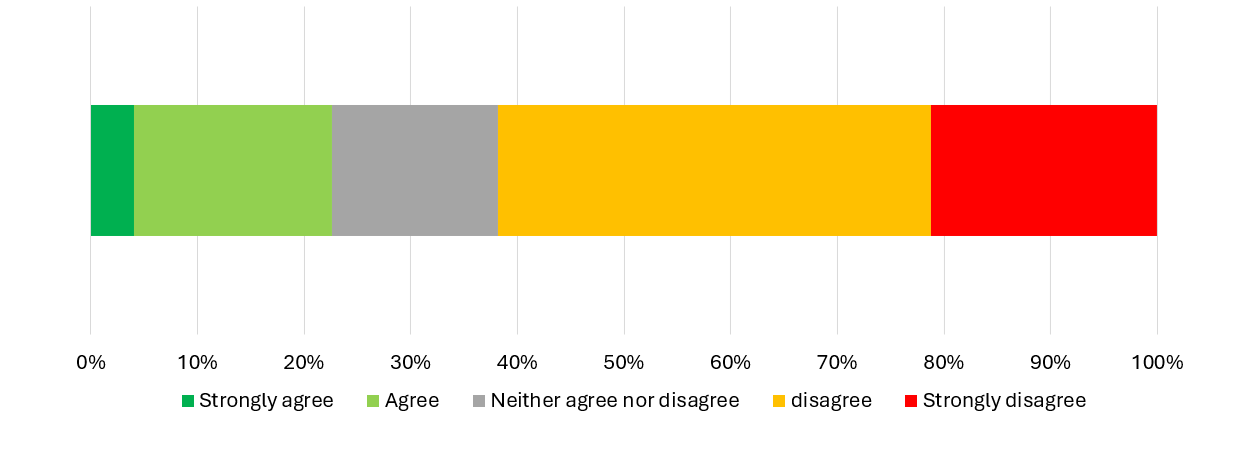
They were much more clear on this statement, with 62% disagreeing. HEO were the only grade to go the other way, with 52% of respondents agreeing.
The processes for managing poor performance or disciplinary issues are straightforward and efficient
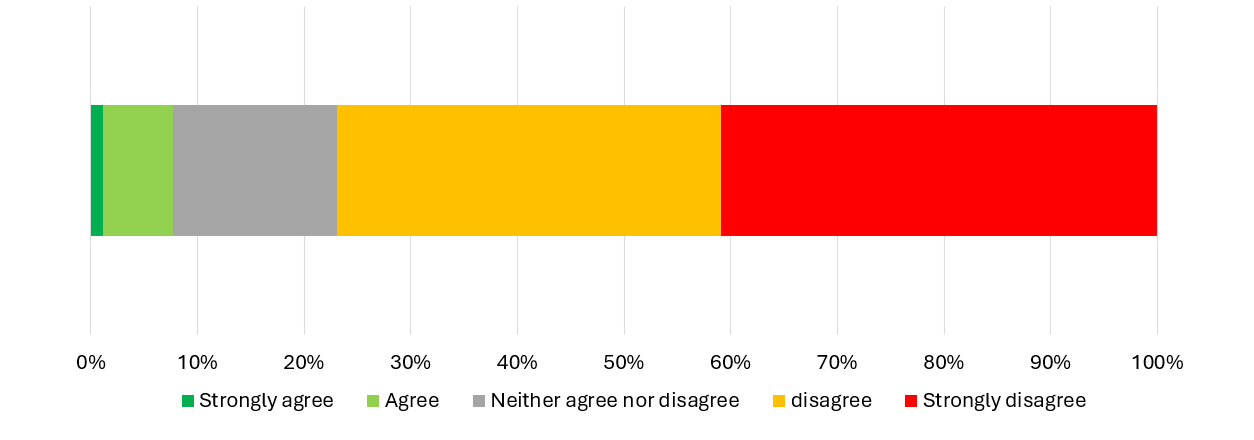
A big majority (77%) disagreed with this statement, while only at HEO and SEO level did more than one in ten agree.
I do not feel the need to go around or operate outside the usual HR processes to hire, manage or remove poor performers

A large proportion of respondents were not sure what to put for this one: 39% said they neither agreed nor disagreed. Among those who picked a side, more disagreed – saying they do feel the need to operate outside the usual processes (35%) – than agreed (27%).
It is important to note that while the survey provides a powerful indicator of civil servants’ views, it is not representative and should not be treated as such.